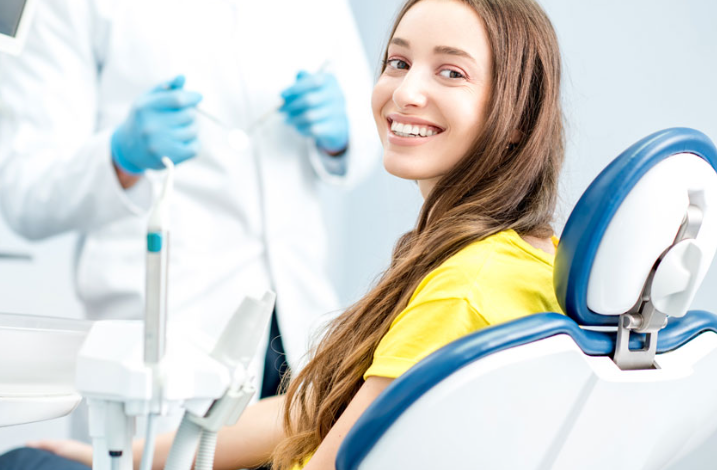10 Common Dental Myths – Debunked by a Dentist

There’s a lot of bad advice floating around when it comes to looking after your teeth. Some of it’s been passed down through families, while other bits have come from social media or old wives’ tales. The trouble is, if you believe the wrong thing, it can actually do more harm than good. To clear things up, here’s what real dentists want you to know about the most common dental myths.
You only need to see the dentist if something hurts
A lot of people put off going to the dentist until they feel pain. The problem with this is that pain usually shows up once there’s already a problem – like a cavity, gum disease, or an infection. Regular check-ups help spot issues before they get worse. Sometimes, things like tooth decay or early gum disease don’t hurt at all until they’re advanced, so waiting for pain can mean bigger bills and more treatment later on.
Brushing harder means cleaner teeth
It might feel like scrubbing hard will give you a better clean, but that’s not how it works. Brushing too hard can actually wear away the enamel on your teeth and damage your gums. A soft toothbrush and gentle pressure, twice a day for two minutes, is enough to clean properly. It’s more about technique than strength.
If your gums bleed, stop brushing
This one scares a lot of people, but it’s the opposite of what you should do. If your gums bleed when you brush or floss, it’s often a sign of gum inflammation – usually from plaque that’s built up along the gumline. Avoiding brushing will only make it worse. Keep brushing gently and flossing daily, and it usually improves. If it doesn’t, see your dentist.
Sugar is the only thing that causes tooth decay
Sugar is definitely one of the biggest culprits when it comes to cavities, but it’s not the only one. Acidic foods and drinks, like soft drink, citrus, and even wine, can weaken your enamel over time. Snacking too often during the day, even on things that aren’t sweet, gives bacteria more chances to feed and produce acid. It’s not just about what you eat, but also how often.
Mouthwash replaces brushing
Mouthwash can be helpful as an extra step, but it doesn’t replace brushing and flossing. It can freshen your breath and help reduce bacteria, but it doesn’t physically remove plaque. Think of it more like a support act, not the main job. If you use it, go for alcohol-free ones – those with alcohol can dry your mouth, which can actually make bad breath worse.
See also: Healthy Snack Tips for Winning More Games
Baby teeth don’t matter because they fall out
It’s true that baby teeth eventually fall out, but they still play an important role. They help with chewing, speaking, and holding space for adult teeth. If they get cavities or are lost too early, it can affect how adult teeth come in. Kids need to brush and floss daily, and they should see a dentist just like adults.
If you’re not sure where to start with your family’s oral health, visiting the best dentist in Newstead can help you stay on track.
You don’t need to floss if you brush well
Flossing isn’t just for removing bits of food – it cleans the areas between teeth that toothbrushes can’t reach. Plaque builds up in those spaces, and if it’s left there, it can lead to cavities and gum disease. Brushing and flossing together give you the best protection.
Whitening damages your teeth
Some people worry that teeth whitening wears away enamel, but if it’s done properly – either by a dentist or using dentist-approved products – it’s safe. Overuse or cheap DIY kits can be risky, though, especially if they have harsh chemicals or you already have sensitive teeth. Always check with your dentist before whitening.
You can’t get cavities under fillings or crowns
Fillings and crowns don’t make your teeth immune to decay. You can still get cavities around the edges or underneath them if plaque builds up. That’s why brushing and flossing matter just as much even after dental work. Clean teeth and healthy gums protect everything – even the treated bits.
You can always ask your local dentist in Newstead about the best way to care for fillings and crowns long-term.
Chewing gum is just as good as brushing
Chewing sugar-free gum can help freshen your breath and may help your mouth make more saliva, which is good for washing away food and acid. But it’s not a replacement for brushing. It doesn’t remove plaque or properly clean your teeth. Think of it as a quick fix, not a full clean.




